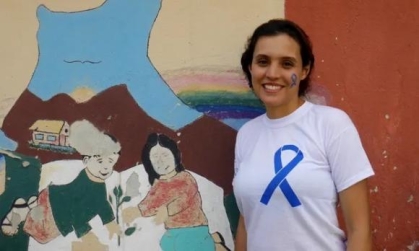Rutgers Law Alumna Wins Sex Abuse Case Against Bolivia

In a historic verdict, Brisa De Angulo [RLAW '12], a rape survivor and campaigner for child victims of sexual abuse, has won a groundbreaking case against the state of Bolivia.
The inter-American court of human rights ruling found the Bolivian government to be “internationally responsible” for violating De Angulo’s rights when she was unable to find justice in the country’s courts when, aged 15, she was repeatedly raped over a period of months by a relative. It had failed to prevent, address, punish, and redress the sexual and institutional violence which she suffered, it said.
The court found Bolivia was responsible for discrimination based on De Angulo’s gender, the fact she was a child and that its courts had revictimised the adolescent girl during judicial proceedings.
“The court recognised that the treatment that Bolivia gave me was cruel and inhumane,” said De Angulo, who is now a lawyer and the founder and CEO of A Breeze of Hope, a charity that supports sexually abused children in Bolivia.
“This is very powerful because they are acknowledging that this treatment is cruel and inhumane,” she said. “But we shouldn’t have to have an international standard to say we should be treated humanely because there are still girls that are going through this, so at least there is finally recognition.”
The legal process began in 2010 when the Inter-American Commission on Human Rights concluded that the Bolivian state had failed to properly investigate and prosecute her case and, in doing so, violated her internationally protected human rights. In 2020, the commission referred De Angulo’s case to the court, which opened it in March 2022.
The court’s decision has established legal precedents for the Americas region which could improve access to justice and prevent discriminatory practices and revictimisation for millions of child and adolescent victims of sexual violence during the judicial process.
[Though a law firm took over most of the legal work during the last several years of the case, Rutgers Law Professor Beth Stephens worked on the case with law students in a human rights “mini-clinic” in Camden. They conducted research, wrote drafts, and represented De Angulo at hearings.]